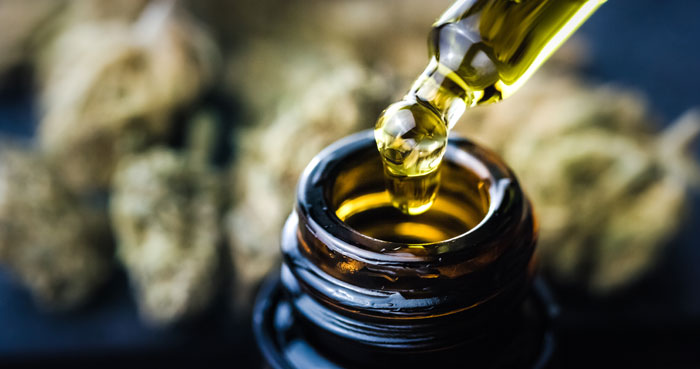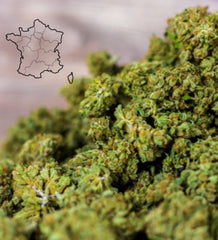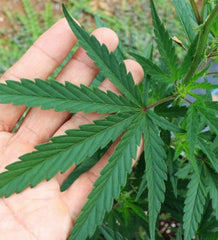
Cannabis and worsening of fatty liver disease
Fatty liver disease and the cannabis issue
Let's first take a closer look at fatty liver disease. It's a condition that can be caused by excessive alcohol consumption, but not only that. Obesity is a key factor in the development of fatty liver disease. This is evidenced by the fact that it is very common in countries with high obesity rates. As a result, as much as a third of the US population suffers from fatty liver disease.
The fact is that while this disease does not manifest particularly dangerous symptoms, its neglect can, as we have specified, induce other much more dangerous pathologies, such as cirrhosis, liver cancer, or even fibrosis.
It remains important to treat fatty liver disease, but there is currently no medication that can do so. The only solution is to lose weight and improve your diet. However, one substance that some scientists have proposed is none other than cannabis.
Cannabis, a friend of the liver?
The links between cannabis use and liver health began to be established based on simple stereotypes. Indeed, it was a widespread belief that cannabis users did not gain weight despite relatively high-calorie diets and, more importantly, that they did not develop liver disease despite some heavy alcohol consumption.
Scientific studies have been conducted to confirm or refute these rumors, and Professor Terence Bukong's results were nothing short of surprising. By studying the medical records of over 320,000 individuals, the results showed that alcohol consumption combined with cannabis reduced the chances of developing hepatitis by 40%, compared to alcohol consumption alone. It's difficult to say whether cannabis is truly responsible, as correlation is not causation, but the scientific data merits further investigation.
Attention to people with hepatitis C
Other studies have been conducted on the subject before Professor Bukong's, and they point in the same direction. This is the case, for example, of this report from the National Health Service (NHS), the British health system, which, in 2010, affirmed through studies that cannabinoids had a positive role in the treatment of fatty liver disease.
Indeed, stimulation of C1 and B1 receptors appeared to induce a decrease in triglyceride levels, particularly in the liver. However, it is on one particular point that this study provides information missing from Terence Bukong's research, namely that inhaling cannabis has exactly the opposite effect in people with hepatitis C. Correlations have made it possible to establish links between cannabis use and the worsening of hepatitis C, for reasons that are, however, unknown. It is true that further research is necessary before confirming the influence of cannabis on this pathology, but caution is required in the meantime.

Which cannabis substances affect fatty liver disease?
As you may know, cannabis is a substance that contains a huge number of chemical agents, more than 400 to be precise. The question that arose was which one(s) had a positive effect in the treatment of fatty liver disease. To answer this question, let's return to the research of our professor, Terence Bukong.
The latter conducted research on the impact of cannabis on liver cells by altering the levels of certain substances to see which formula would work best. The data shows that with a higher level of CBD and a lower level of THC, the results are more conclusive.
CBD refers to cannabidiol, a substance known for its anti-inflammatory properties, and THC, on the other hand, is responsible for the psychoactive effect of cannabis. According to Terence Bukong, it is best to consume cannabis with a balanced ratio of CBD and THC.
Can CBD oil be used for the treatment of fatty liver disease?
CBD oil has been enjoying a surge in popularity for some time now. Touted for its many benefits, particularly therapeutic ones, CBD is a natural substance packed with health benefits.
CBD oil is obtained from the cannabis plant, from which cannabidiol is extracted, trying to isolate it as much as possible from the other constituents of the plant. For this product to be legally sold, the THC level must be minimal, as it is illegal due to the psychoactive effects it causes. Thus, in the European Union, bottles of CBD oil must contain a maximum of 0.3% THC.
To answer the question of the use of CBD oil in the treatment of fatty liver disease, let's go back to the work of Professor Bukong. He noticed a positive effect when CBD and THC work in synergy, preferably with a high ratio in favor of cannabidiol. That said, with a THC level of 0.3% or less, we can say that the substance is almost non-existent and that it does not provide any effect. Therefore, CBD acts alone, and this is not beneficial when used to treat or alleviate fatty liver disease.

Can CBD be toxic to the liver?
Unlike cannabis, CBD has a completely different reputation regarding its effects on the liver. In fact, cannabis is said to be particularly dangerous for this vital organ and can even cause disease. While the rumor about cannabis' beneficial effects on the liver has proven partially correct, the same cannot be said for the rumor about CBD.
Indeed, critics of this substance use a scientific study on mice, which were administered different doses of CBD oil to see its effects on the liver. It turned out that at certain doses, the mice became ill and even died at the highest doses (up to 615 mg/kg).
In reality, these were completely disproportionate doses; if we were to administer proportional doses to humans, this would be 5473 mg of CBD oil for a 90 kg man (and this for the smallest dose, which, remember, had no effect on mice). This is equivalent to consuming 11 bottles of 10 mg at 5% in one day, an absolutely unsustainable quantity. CBD is therefore absolutely not dangerous for the liver, and you can continue to consume it with peace of mind.





